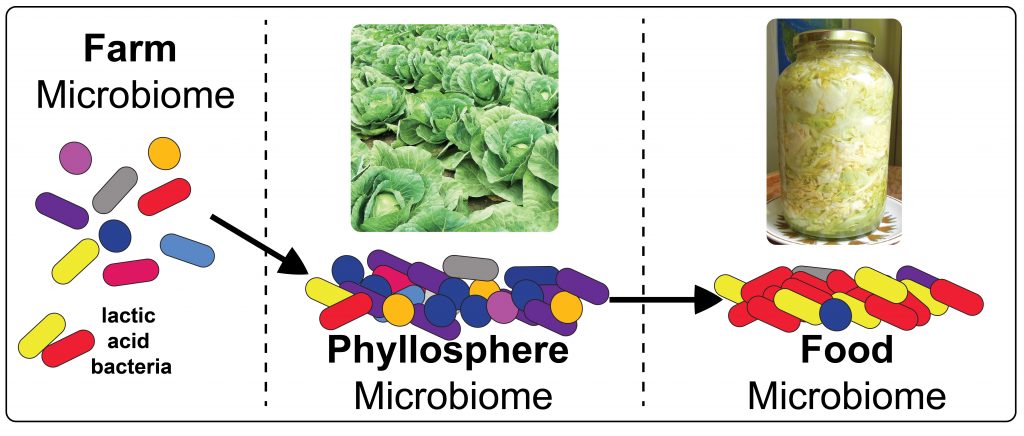The Wolfe lab has received a grant from the United States Department of Agriculture to study the ecology of lactic acid bacteria. Lactic acid bacteria (LAB) ferment vegetables into delicious products such as sauerkraut, kimchi, and natural pickles. These beneficial bacteria are found in high abundance in fermented foods, and likely enter the fermentation process through raw plant materials.

Microbes living within a farming system (farm microbiome) can colonize plant leaves. This collection of microbes is known as the phyllosphere microbiome. Lactic acid bacteria living in the phyllosphere ferment vegetables and become the food microbiome.
Many questions about the ecology of LAB remain unanswered. What is the diversity of LAB species that live on plants? How does this diversity vary across vegetable farms and gardens throughout the Northeastern United States? How do LAB get from the farm environment (soil, neighboring fields/forests) to the leaves of vegetables?
To answer these questions, we are working with a network of vegetable growers throughout the Northeastern US. From each of these sites, we are collecting soils and leaves and will use these samples to isolate and identify plant-associated LAB.
Do you know of farms in the Northeastern US that might be willing to let us sample? Sampling will occur at two different times (June and September). We will collect 10-20 samples of leaves (small pieces of vegetables as well as natural vegetation in the area) and soil (½ a cup from the top 1-3 inches of soil). We can sample at whatever day/time is best, and will be sure to have minimal impact on work/planting/harvest schedules.
Please contact Ben for more info about participating in this study.
